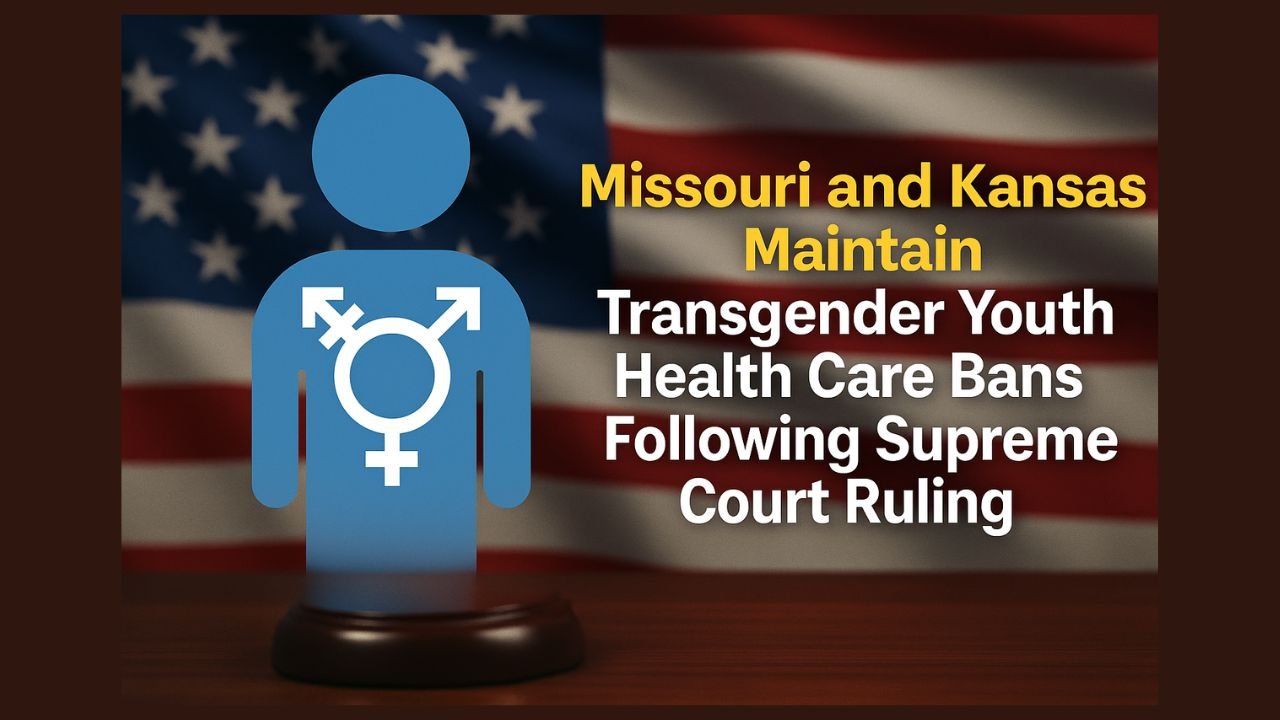A 6-3 ruling by the U.S. Supreme Court on Wednesday has upheld state bans on gender-affirming medical care for minors, effectively allowing Missouri and Kansas to keep their existing restrictions in place.
The decision centered around a similar law in Tennessee and has set a precedent that supports state-level control over transgender health policies.
Background on the Ruling and Its Local Impact
The Court determined that Tennessee’s 2023 ban on hormone therapy and gender-related surgeries for youth does not violate constitutional protections, stating the law does not directly discriminate based on sex because it applies across all genders. This ruling now strengthens the legality of comparable bans in Missouri and Kansas, both enacted in 2023.
Missouri’s law was passed in response to claims by a former employee at the Washington University Transgender Center that some minors were treated without adequate evaluation.
The ban is set to expire in 2027, but a pending ballot measure could make it permanent by enshrining restrictions into the state constitution.
Legal Challenges and Ongoing Advocacy
Despite the ruling, civil rights advocates and legal groups continue to challenge the bans. In Kansas, lawmakers overrode Governor Laura Kelly’s veto to pass the law.
Shortly after, two transgender teens and their families—represented by the ACLU of Kansas—filed a lawsuit claiming the law violates Kansas state constitution.
Similarly, the ACLU of Missouri and advocacy groups like PROMO are pursuing legal avenues to overturn the state’s restrictions, even after a Missouri Circuit Court upheld the current ban.
“Today’s Supreme Court decision is devastating to transgender Missourians and their families,” said Tom Bastian, Communications Director at ACLU Missouri. “But this doesn’t mark the end of our fight.”
Strong Dissent from Liberal Justices
Justice Sonia Sotomayor, in a sharply worded dissent, criticized the majority opinion for abandoning transgender youth and their families to political decisions.
She emphasized the urgent need to protect individual medical rights and warned that the ruling opens the door to further marginalization.
Advocacy Groups Continue the Fight
Robert Fischer, spokesperson for PROMO, likened the denial of transgender care to withholding life-saving medications like insulin and expressed optimism about future legal strategies.
He stressed that while the ruling is a setback, it does not close the door on state-level litigation or constitutional advocacy.
The Supreme Court’s decision to uphold a Tennessee law restricting gender-affirming care for minors reinforces similar policies in Missouri and Kansas.
While legal challenges continue under state constitutions, the ruling represents a significant moment in the ongoing national conversation about transgender rights and youth healthcare access. Advocacy groups vow to keep pushing back through litigation and public policy reform.




